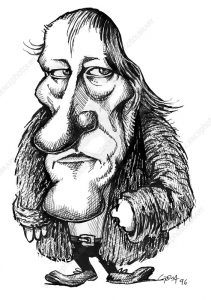Plague Journal, Hegel
 Did not post anything yesterday. An important appointment early in the day foreclosed the opportunity to give adequate consideration to what I had on my mind. I would have written about the current President of the United States as our *fire-starter; like a troubled child, or disturbed adult who finds an adrenaline rush in destruction, seeing buildings burn. In his unconcealed avocation, he has help. Some of his supporting acolytes, apprentice fire-starters: Pence, Pompeo, Steven Miller, Attorney General William Barr.
Did not post anything yesterday. An important appointment early in the day foreclosed the opportunity to give adequate consideration to what I had on my mind. I would have written about the current President of the United States as our *fire-starter; like a troubled child, or disturbed adult who finds an adrenaline rush in destruction, seeing buildings burn. In his unconcealed avocation, he has help. Some of his supporting acolytes, apprentice fire-starters: Pence, Pompeo, Steven Miller, Attorney General William Barr.
Ask any Trump supporter about the term “liberal-democratic-society.” Odds are they will admit the revulsion they feel toward the term “liberal.”
The President, a fire starter?! Yes. This from today’s issue of the NYT.
Officials in Tulsa, Okla., are pleading with President Trump to cancel his indoor rally set for Saturday, or move it outdoors, saying the state is already experiencing a spike in infections. — New York Times June 17 Morning Briefing
* apologies to Stephen King
We met last night, a circle of chairs on the grassy lawn to resume our weekly philosophy discussion group. Weeks have passed, and we have discovered that emailed exchange of ideas does not afford the same satisfaction as face to face meeting, to mull over what great minds offer in relation to our lives, and in relation to social challenges that spin around us.

Hegel’s philosophy of history was the topic of our discussion. G.W.F. Hegel (1770-1831) has not been one of my favorite philosophers. He is the last of a long line of idealist philosophers, beginning with Plato, who proposed that reality is in accord with reason, and that history can be understood in terms of dialectical movement. History is moving toward the “fulfillment”, events arcing toward a full realization of freedom, — which we will be able to understand in retrospect.
That is a comforting thought, that history is none other than the consummation of freedom. That is a energizing thought if one cares about injustice, and wants to alleviate the suffering of the majority who are unfortunate in life. I am not convinced that Hegel was right about that. The idea has a great effect though in my lifetime. Hegelian philosophy of dialectic and of historical fulfillment is the driving engine of Marxist thought, which comes in many forms. The concept of some ideal society even figures prominent in the last campaign pitch of the President, the line — “make America great again.” Certainly we’ve not heard the last of that figure of speech.
Hegel’s contribution of dialectic, — the impetus of an idea or an event, encountering its opposite, resulting in contested ground, the upshot being a new idea/event emerges from the struggle, the now dominant new idea occupying the ground, containing in residual form the defeated opposition, is provocative. That, it seems to me is a fruitful way of understanding many things that come our way in life. Particularly when our relationships are by definition complex with many influences competing for expression.
I was asked by a friend at the discussion of last evening to name an example of this Hegelian dialectic. I did not think of this example at the time when I was asked. However as the individual that I happen to be after seventy one years of life, — in retrospect I am aware that my personality/psyche contains in residual form, aspects of both of my parents, as well as of my grandparents. I now understand my mother’s point when she’d comment that she could see her daddy in me. The past is never finished but continues in residual form, subtle and effective in our present.